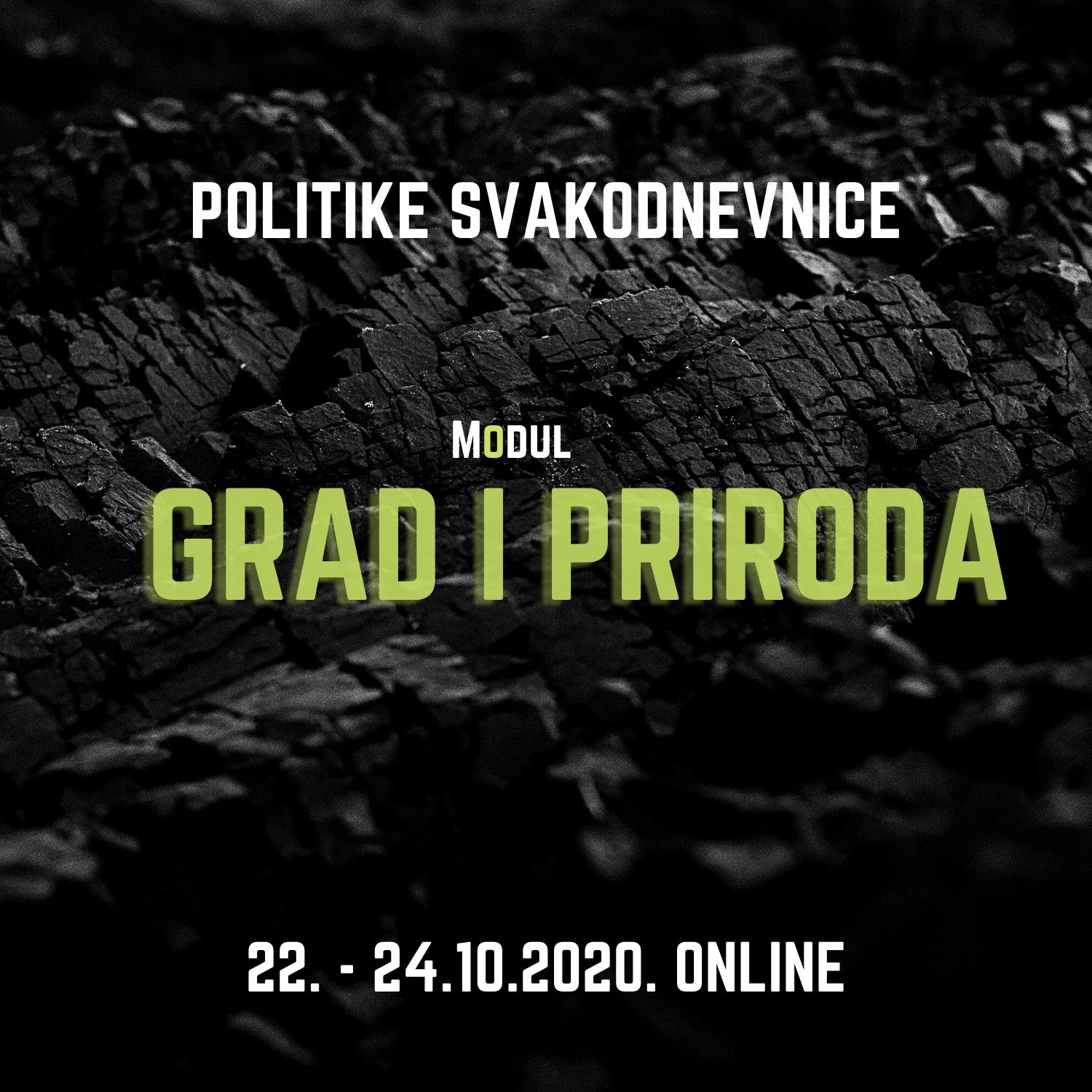i-platform once again supported implementation of the Module of Association for Culture and Arts "Crvena"
A large number, mostly young people from Bosnia and Herzegovina and also from the region, attended several lectures given by Dr. sc. Mladen Domazet, then dr. Vladimir Đurđević, and finally by respected Mirko Nikolić.
Growth and sustainability perspectives
On the first evening, the participants of the module attended the lectures of dr. sc. Mladen Domazet from the Institute of Political Ecology. This young, and at the same time highly respected scientist graduated in physics and philosophy at University of Oxford and received his doctorate in the scientific field of philosophy at University of Zagreb. Thanks to "Crvena", and with all the help and support of i-platform and Olof Palme International Center, Domazet spoke about the prospects of growth and sustainability, emphasizing that growth is a relentless critique of all aspects of economic growth ideology and a hypothesis of social development. He added, among other things, that a socially transformative reduction in the material and energy flow of the developed economies of the North is possible, not just necessary.
All interested participants, after the lecture, were given the opportunity for further clarification, as well as instructions for additional information related to this topic.
Forms of climate change and the climate crisis in the Balkans
Second night of the module was dedicated to climate change. Lectures on this topic were given to all interested persons by the distinguished dr. Vladimir Đurđević from the Belgrade Institute of Meteorology. Except that Dr. Đurđević spoke about the importance of fossil fuels, pointed out, among other things, that today the ice is melting in the Arctic, Antarctica, Greenland, then added that there is a noticeable increase in the mean level of the global ocean, stronger and longer heat waves, more intense and frequent droughts, more intense storms, that the risk of forest fires is increased, and that changes in the life cycles of plants and animals are recognized. Also, Đurđević states that there is a shift in diseases and pests, as well as that there have been migrations, increasing inequality, intergenerational injustice etc.
Like the first evening, the second night of the lecture was finalized with discussion.
After extractivism. Earth and social reproduction
On Saturday, the last day of the online module which was dedicated to lectures by the distinguished Mirko Nikolić, who deals with the issues of renewal and healing in the devastated areas left by extractive capitalism, pluriverized solidarity, earthly reproductive work, and unity among different species.
"In our cities, as far as the eye can see, the products of extractivism are rising and shining. Behind the gleaming screens and facades, ghosts and shadows, holes and disasters of the extraction realm stretch. This violent political-economic hegemony is based on the claim that many bodies and their forces are ‘necessary for the progress of humanity’, that they should be systematically removed from their homes, processed, exploited, discarded.
Post-Yugoslav region, primarily thanks to liberalization policies, but also as a semi-periphery of the global network of raw materials, is currently a zone of intensive expansion of extractivism, especially in the mining industry. These processes are closely related to other domains of production that go far beyond traditional ‘natural resource’ industries. Extractivist logic / logistics permeates the digital industry, ‘green economy’ as well as globalized knowledge and culture production networks.
The penetration of extractivism through society, at the same time, means that both forms of resistance and affirmation of alternatives are ubiquitous, persistent and enduring, although often marginalized. Following the work of communities of resistance to extractivist expansion, and in conversation with feminist and queer materialism and anti-colonial practices, this intervention outlines counteranalytics and practices of transforming everyday life beyond the imperial logic / logistics of extraction, "said Mirko Nikolić.
This lecture ended the three-day module of the Association for Culture and Arts "Crvena". Their representatives are already working on the preparation of new, successful stories and events, and the i-platform will certainly, as before, continue to provide generous support to this Association.

